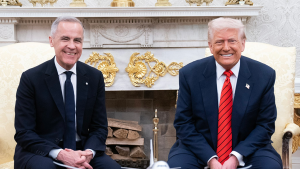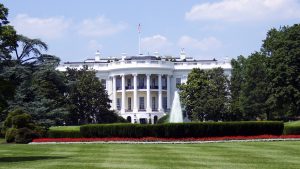The chaos generated by U.S. President Donald Trump constantly shifting the goalposts on tariffs has rankled the construction industry and caused uncertainty on both sides of the border.
In America, tariffs on products like steel, lumber, aluminum, cement and gypsum would substantially raise the cost of building.
Likewise, in Canada, tariffs on American imports would result in price hikes on products used for building homes, such as plywood, glass, metal fittings, light fixtures, electrical parts, plumbing and mechanical components, tile and much more.
Across the country, provinces and individual municipalities are trying to figure out how to best insulate themselves from the negative effects of tariffs.
The City of Toronto is fighting back with a multi-faceted Buy Local, Buy Canadian campaign that encourages residents and businesses to join in purchasing locally made goods to protect jobs in the province.
On Feb. 5, city council voted 26-0 to request that the federal government develop a standard recognizable label to be placed on all Canadian goods that clearly shows percentages of Canadian content. The idea is being forwarded to all Ontario municipalities to encourage them to join in the effort.
The city manager and relevant city divisions have been directed to develop a campaign that will encourage spending to further develop local economies through the purchasing of local goods and services.
The campaign is expected to cost about $250,000.
According to the motion put forward by Coun. Mike Colle, with recent threats from the president to impose a tariff on Canadian products and services, it is important that municipalities, businesses, and residents across Canada stand up for the country, as well as the economy, and businesses.
“The City of Toronto, Canada’s largest municipality, has an opportunity to encourage residents, businesses, and cities across Canada to create and participate in a Buy Local, Buy Canadian campaign to ensure that we support local products, local businesses, and local growth,” the motion reads.
There had been talk about Toronto pulling the plug on doing business with American companies, but council learned U.S. suppliers account for less than 10 per cent of contracts in the city’s $19-billion operating budget
The city’s plan will include a review of its contracts and procurement policies to ensure Canadian businesses are prioritized for municipal contracts. The city will also look at existing deals with American suppliers and create a wider Toronto Action Plan.
An economic action team will also be formed that consists of business and labour leaders to advise the city on what should be done to protect economic sectors most at risk. Members of the team have yet to be announced.
In light of a possible tariff war, individual provinces are also taking action.
Ontario Premier Doug Ford wrote on LinkedIn he hopes cooler heads prevail but warned that he won’t hesitate to remove American products from LCBO shelves or ban U.S. companies from procuring projects in Ontario.
B.C. intends to put in place a three-point plan to fight tariffs. The plan includes counteractions and outreach to American decision-makers, strengthening the province’s economy by expediting projects and supporting industry and workers in the province by diversifying trade markets.
In Manitoba, a digital advertising campaign, called Support Manitoba. Buy Local, has been launched that includes a website with links to made-in-Manitoba and made-in-Canada products and businesses.
Newfoundland has launched a multi-media awareness campaign called Buy NL Can.
Quebec’s approach is to create more jobs at Hydro-Québec and fast-track the construction of infrastructure in health, education and public transit sectors.
The plan in New Brunswick, Nova Scotia, P.E.I., Yukon and the N.W.T. is to pull American alcohol from liquor store shelves. The provinces and territory also intend to stop signing or limit contracts with American companies.
Nova Scotia Premier Tim Houston said in a statement he is concerned but is hopeful that the tariff issue does not escalate.
Nova Scotia will be ready to respond, if needed, he noted. “But I believe that the strength of our longtime friendship with the United States will ultimately prevail. It has survived wars, recessions and pandemics – I believe it can also ultimately survive President Trump.”
Alberta is taking a different approach to the issue of tariffs. Premier Danielle Smith said following a recent First Minister’s meeting that the Prairie province will instead continue its diplomatic efforts with U.S. lawmakers and officials and the government will be going after drug labs, kingpins and dealers.
Saskatchewan Premier Scott Moe, meantime, has indicated he supports very targeted and specific retaliatory measures to tariffs, but warned they can’t be the longer-term answer.











Recent Comments
comments for this post are closed